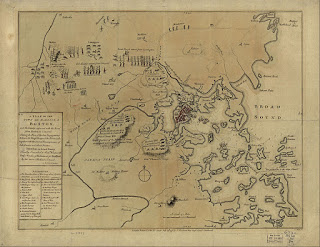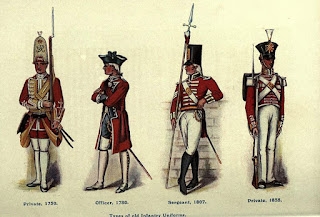Questions :
How can the Rights of all people be protected?
Which should have more power, the states or the national government?
After the first Continental Congress some colonists began to accumulate arms and ammunition
Rumors of weapons build up began to spread
 | |
| 1775 map of the battles and of the Siege of Boston |
 |
| A National Park Service map showing the routes of the initial Patriot messengers and of the British expedition |
https://www.history.com/topics/american-revolution/battles-of-lexington-and-concord
The Battles of Lexington and Concord were the first military engagements of the American Revolutionary War.
https://en.wikipedia.org/wiki/Battles_of_Lexington_and_Concord
General Thomas Gage (British Military Commander and Governor of Massachusetts) heard rumors decided to raid a suspected ammunitions site in Concord, Mass.
 |
| Thomas Gage |
Paul Revere warns the colonial militia units (minutemen) of Gage’s plan
 | |
| Silversmith Paul Revere and several other messengers on horseback sounded the alarm that the regulars were leaving Boston. |
http://www.history.com/topics/american-revolution/paul-revere
Gage’s troops arrive in Lexington, just outside of Concord, and shots were exchanged between the Brits and Minutemen
Gage continues to Concord, searches the empty ammunition storage.Fighting continued throughout the day
"shot heard round the world"
 |
| The reconstructed North Bridge in Minute Man National Historical Park, Concord |
273 British casualties
95 American casualties
The Revolution had begun
The Second Continental Congress
Although no legal authority to exist, it operated as the unifying government throughout the Revolution
By 1775 most British governors had deserted their posts in the Colonies and returned to England .Delegate opinions in the Congress varied and many feared total independence from Britain because of trade and safety concerns.Most expressed concerns over the lack of representation in Parliament, not the power of the monarch.Reluctantly decided to create an army
The Continental Army
Relatively unknown man from Virginia
Chosen by the Continental Congress to lead the continental army
Significant because it shows commitment to the war throughout the diverse colonies
 | |
| General George Washington was appointed Commander-in-Chief of the Continental Army on June 15, 1775. |
 | ||||||
| 1781 Drawing of Soldiers of Washington's Army |
 |
| Infantry of the Continental Army |
Continental Army – colonists resisting British rule
“Blue Coats,” “Patriots,” “Rebels”
British Army – British and colonial supporters fighting to maintain British Power
“Loyalists,” “Tories,” “Red Coats”
Second Continental Congress Continues its work
Decided to officially declare war
Created a currency – Continental Dollars
 |
| Obverse and reverse of a three pence note of paper currency issued by the Province of Pennsylvania and printed by Benjamin Franklin in 1764. |
 |
| Continental One Third Dollar Note |
Still hoped to negotiate peace with England
Olive Branch Petition
Sent to the King
Blamed Parliament, not the King for the current conflict
Stated loyalty to the monarch and asked that each colony be recognized as independent parliaments subject to the King.
King George rejected the plan and called Americans “rebels, traitors, and enemies.”











No comments:
Post a Comment